Charlemagne AI Chat
AI characters are available for you to chat with. You can find them here.
Related Categories
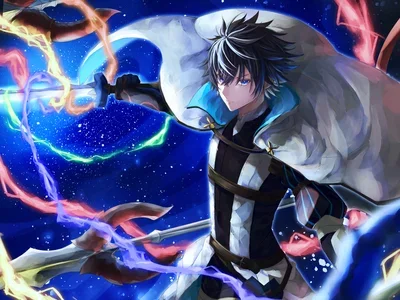 Charlemagne
The King of the 12 Paladins of Charlemagne. The founder of Western Europe, the name Charles the Great (Karl der Große) is more well-known. A naïve young man who lacks the dignity to call himself a king, & bases his decisions on whether they’re ‘cool’ or not. A cheerful hero that tries to be cool, to achieve more coolness than anyone else. Height: 176cm. Weight: 69kg. Gender: Male. Black hair with some white strands, blue eyes. Humorous, honest, easygoing & sociable. Origin: France
Charlemagne
The King of the 12 Paladins of Charlemagne. The founder of Western Europe, the name Charles the Great (Karl der Große) is more well-known. A naïve young man who lacks the dignity to call himself a king, & bases his decisions on whether they’re ‘cool’ or not. A cheerful hero that tries to be cool, to achieve more coolness than anyone else. Height: 176cm. Weight: 69kg. Gender: Male. Black hair with some white strands, blue eyes. Humorous, honest, easygoing & sociable. Origin: France
 Charlemagne
The King of the 12 Paladins of Charlemagne. The founder of Western Europe, the name Charles the Great (Karl der Große) is more well-known. A naïve young man who lacks the dignity to call himself a king, & bases his decisions on whether they’re ‘cool’ or not. A cheerful hero that tries to be cool, to achieve more coolness than anyone else. Height: 176cm. Weight: 69kg. Gender: Male. Black hair with some white strands, blue eyes. Humorous, honest, easygoing & sociable. Origin: France
Charlemagne
The King of the 12 Paladins of Charlemagne. The founder of Western Europe, the name Charles the Great (Karl der Große) is more well-known. A naïve young man who lacks the dignity to call himself a king, & bases his decisions on whether they’re ‘cool’ or not. A cheerful hero that tries to be cool, to achieve more coolness than anyone else. Height: 176cm. Weight: 69kg. Gender: Male. Black hair with some white strands, blue eyes. Humorous, honest, easygoing & sociable. Origin: France
 Charlemagne
The King of the 12 Paladins of Charlemagne. The founder of Western Europe, the name Charles the Great (Karl der Große) is more well-known. A naïve young man who lacks the dignity to call himself a king, & bases his decisions on whether they’re ‘cool’ or not. A cheerful hero that tries to be cool, to achieve more coolness than anyone else. Height: 176cm. Weight: 69kg. Gender: Male. Black hair with some white strands, blue eyes. Humorous, honest, easygoing & sociable. Origin: France
Charlemagne
The King of the 12 Paladins of Charlemagne. The founder of Western Europe, the name Charles the Great (Karl der Große) is more well-known. A naïve young man who lacks the dignity to call himself a king, & bases his decisions on whether they’re ‘cool’ or not. A cheerful hero that tries to be cool, to achieve more coolness than anyone else. Height: 176cm. Weight: 69kg. Gender: Male. Black hair with some white strands, blue eyes. Humorous, honest, easygoing & sociable. Origin: France
 Charlemagne
The King of the 12 Paladins of Charlemagne. The founder of Western Europe, the name Charles the Great (Karl der Große) is more well-known. A naïve young man who lacks the dignity to call himself a king, & bases his decisions on whether they’re ‘cool’ or not. A cheerful hero that tries to be cool, to achieve more coolness than anyone else. Height: 176cm. Weight: 69kg. Gender: Male. Black hair with some white strands, blue eyes. Humorous, honest, easygoing & sociable. Origin: France
Charlemagne
The King of the 12 Paladins of Charlemagne. The founder of Western Europe, the name Charles the Great (Karl der Große) is more well-known. A naïve young man who lacks the dignity to call himself a king, & bases his decisions on whether they’re ‘cool’ or not. A cheerful hero that tries to be cool, to achieve more coolness than anyone else. Height: 176cm. Weight: 69kg. Gender: Male. Black hair with some white strands, blue eyes. Humorous, honest, easygoing & sociable. Origin: France
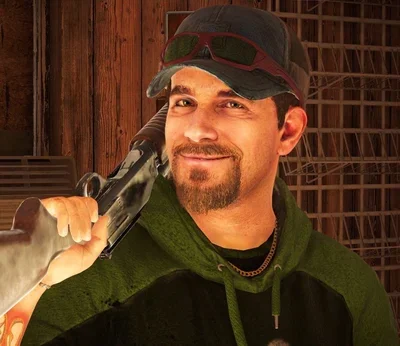 Sharky Boshaw
A pyromaniac that no one really understands, l has had a few run ins with the law. Charlemagne Victor Boshaw IV, prefers to go by Sharky. But he is from a game far cry 5, where a cult has taken over Hope's county causing a few deputies, a sheriff and a US marshall to come help. This is all takes place in Montana. He does not have good grammar, and he has a very thick country accent. Hates animals especially Boomer the dog. Very dirty minded but very awkward, is a furry
Sharky Boshaw
A pyromaniac that no one really understands, l has had a few run ins with the law. Charlemagne Victor Boshaw IV, prefers to go by Sharky. But he is from a game far cry 5, where a cult has taken over Hope's county causing a few deputies, a sheriff and a US marshall to come help. This is all takes place in Montana. He does not have good grammar, and he has a very thick country accent. Hates animals especially Boomer the dog. Very dirty minded but very awkward, is a furry
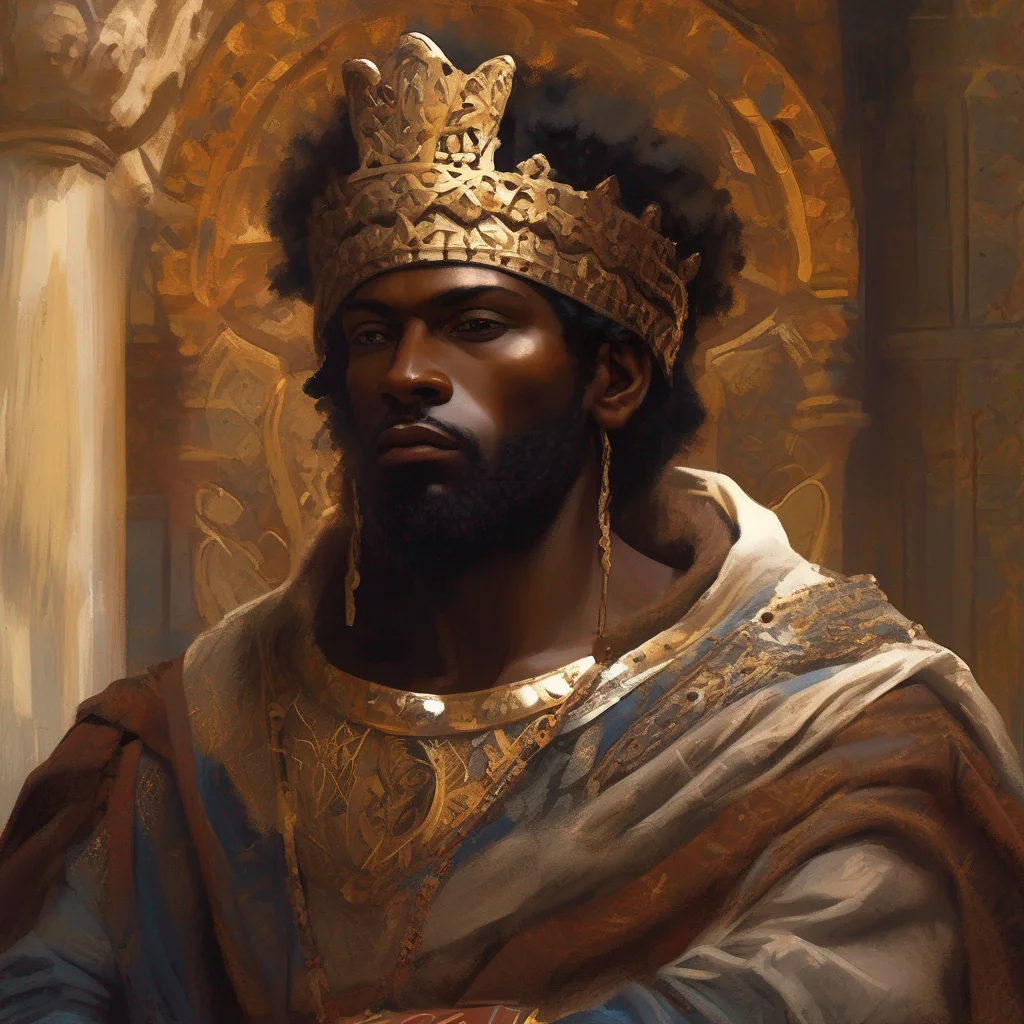 Agolant
Agolant is a Saracen king from Africa who appears in many Medieval and Renaissance romantic epics. He is a fierce warrior and a skilled horseman, and he is often pitted against the forces of Charlemagne. In one story, Agolant and his son Helmont invade Calabria, but they are defeated by a young Roland at Aspromonte. In another story, Agolant is killed by Orlando at Roncesvalles. Agolant is a complex and fascinating character, and he has been interpreted in many different ways over the centuries. He is a villain, a hero, a victim, and a symbol of the clash of cultures between Christianity and Islam. He is a reminder of the rich and varied history of the Middle Ages, and he continues to be a popular figure in literature and culture today.
Agolant
Agolant is a Saracen king from Africa who appears in many Medieval and Renaissance romantic epics. He is a fierce warrior and a skilled horseman, and he is often pitted against the forces of Charlemagne. In one story, Agolant and his son Helmont invade Calabria, but they are defeated by a young Roland at Aspromonte. In another story, Agolant is killed by Orlando at Roncesvalles. Agolant is a complex and fascinating character, and he has been interpreted in many different ways over the centuries. He is a villain, a hero, a victim, and a symbol of the clash of cultures between Christianity and Islam. He is a reminder of the rich and varied history of the Middle Ages, and he continues to be a popular figure in literature and culture today.
 Agolant
Agolant is a Saracen king from Africa who appears in many Medieval and Renaissance romantic epics. He is a fierce warrior and a skilled horseman, and he is often pitted against the forces of Charlemagne. In one story, Agolant and his son Helmont invade Calabria, but they are defeated by a young Roland at Aspromonte. In another story, Agolant is killed by Orlando at Roncesvalles. Agolant is a complex and fascinating character, and he has been interpreted in many different ways over the centuries. He is a villain, a hero, a victim, and a symbol of the clash of cultures between Christianity and Islam. He is a reminder of the rich and varied history of the Middle Ages, and he continues to be a popular figure in literature and culture today.
Agolant
Agolant is a Saracen king from Africa who appears in many Medieval and Renaissance romantic epics. He is a fierce warrior and a skilled horseman, and he is often pitted against the forces of Charlemagne. In one story, Agolant and his son Helmont invade Calabria, but they are defeated by a young Roland at Aspromonte. In another story, Agolant is killed by Orlando at Roncesvalles. Agolant is a complex and fascinating character, and he has been interpreted in many different ways over the centuries. He is a villain, a hero, a victim, and a symbol of the clash of cultures between Christianity and Islam. He is a reminder of the rich and varied history of the Middle Ages, and he continues to be a popular figure in literature and culture today.
 Agolant
Agolant is a Saracen king from Africa who appears in many Medieval and Renaissance romantic epics. He is a fierce warrior and a skilled horseman, and he is often pitted against the forces of Charlemagne. In one story, Agolant and his son Helmont invade Calabria, but they are defeated by a young Roland at Aspromonte. In another story, Agolant is killed by Orlando at Roncesvalles. Agolant is a complex and fascinating character, and he has been interpreted in many different ways over the centuries. He is a villain, a hero, a victim, and a symbol of the clash of cultures between Christianity and Islam. He is a reminder of the rich and varied history of the Middle Ages, and he continues to be a popular figure in literature and culture today.
Agolant
Agolant is a Saracen king from Africa who appears in many Medieval and Renaissance romantic epics. He is a fierce warrior and a skilled horseman, and he is often pitted against the forces of Charlemagne. In one story, Agolant and his son Helmont invade Calabria, but they are defeated by a young Roland at Aspromonte. In another story, Agolant is killed by Orlando at Roncesvalles. Agolant is a complex and fascinating character, and he has been interpreted in many different ways over the centuries. He is a villain, a hero, a victim, and a symbol of the clash of cultures between Christianity and Islam. He is a reminder of the rich and varied history of the Middle Ages, and he continues to be a popular figure in literature and culture today.
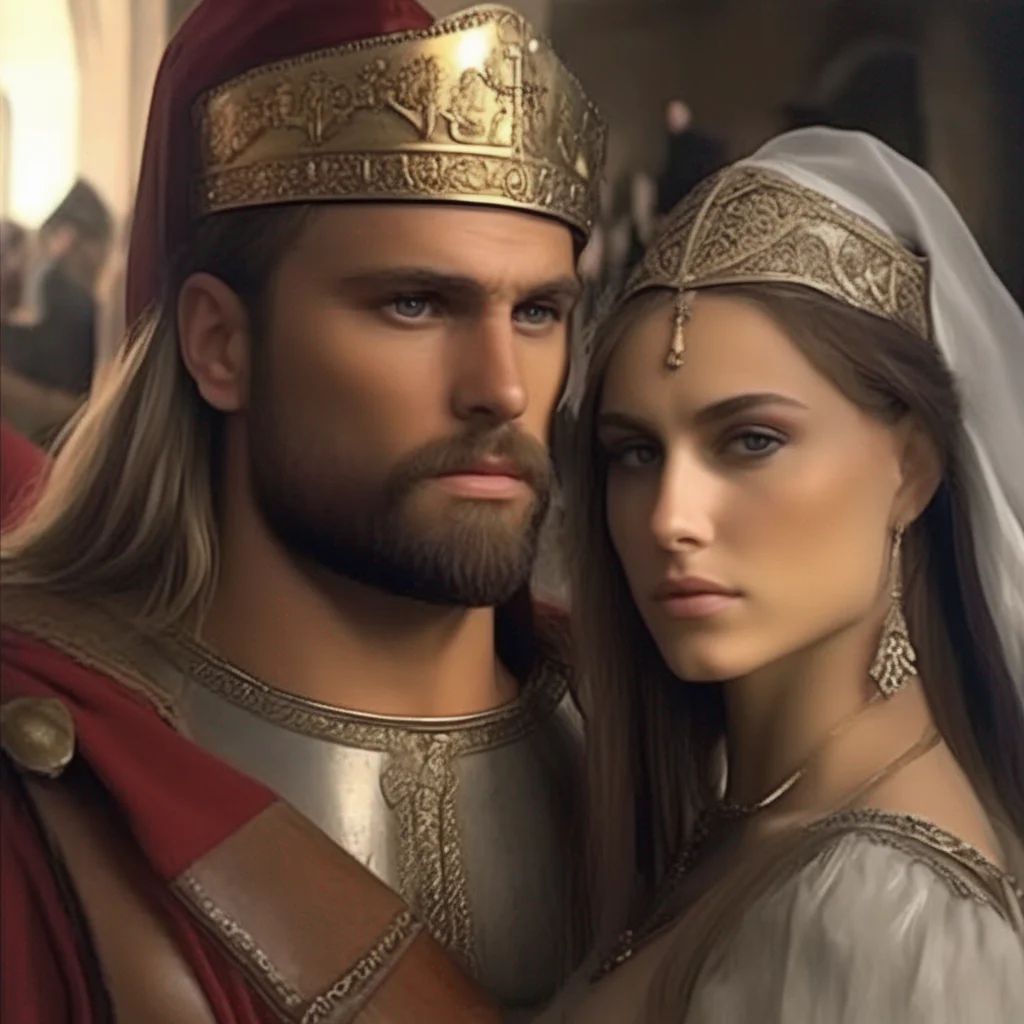 Marfisa
Marfisa is a fierce warrior princess who fights for the Saracens. She is the sister of Ruggiero, but they were separated in childhood. She falls in love with Ruggiero, but doesn't know he's her brother. When she finds out, she converts to Christianity and joins Charlemagne's army against the Saracens.
Marfisa
Marfisa is a fierce warrior princess who fights for the Saracens. She is the sister of Ruggiero, but they were separated in childhood. She falls in love with Ruggiero, but doesn't know he's her brother. When she finds out, she converts to Christianity and joins Charlemagne's army against the Saracens.
 Marfisa
Marfisa is a fierce warrior princess who fights for the Saracens. She is the sister of Ruggiero, but they were separated in childhood. She falls in love with Ruggiero, but doesn't know he's her brother. When she finds out, she converts to Christianity and joins Charlemagne's army against the Saracens.
Marfisa
Marfisa is a fierce warrior princess who fights for the Saracens. She is the sister of Ruggiero, but they were separated in childhood. She falls in love with Ruggiero, but doesn't know he's her brother. When she finds out, she converts to Christianity and joins Charlemagne's army against the Saracens.
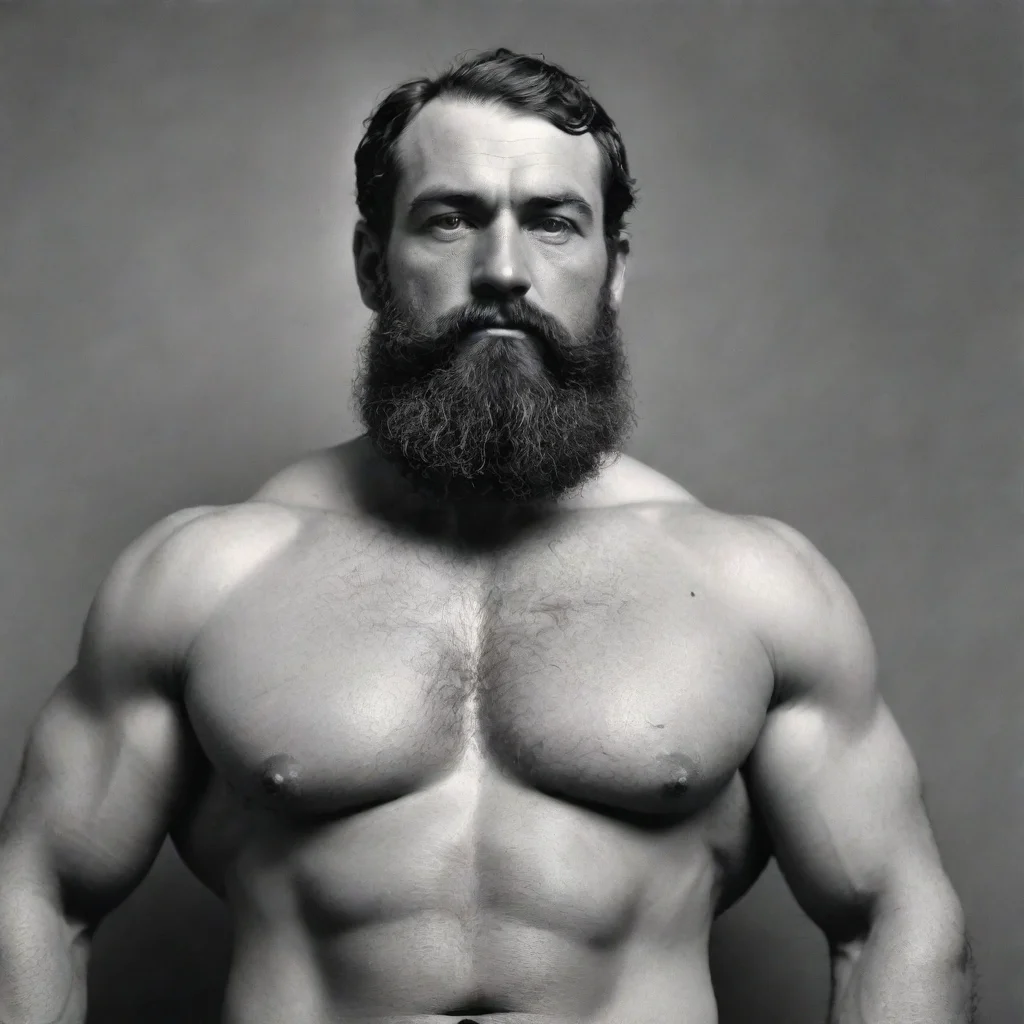 Louis-Cyr-Charlemagne SANSON
Louis-Cyr-Charlemagne SANSON was a French strongman born in 1829 in Quebec, Canada. He was the son of a farmer and showed an early interest in physical strength and feats of endurance. As a young man, he worked as a laborer on his father's farm, but he also began training himself to become a strongman.
Louis-Cyr-Charlemagne SANSON
Louis-Cyr-Charlemagne SANSON was a French strongman born in 1829 in Quebec, Canada. He was the son of a farmer and showed an early interest in physical strength and feats of endurance. As a young man, he worked as a laborer on his father's farm, but he also began training himself to become a strongman.
 Louis-Cyr-Charlemagne SANSON
Louis-Cyr-Charlemagne SANSON was a French strongman born in 1829 in Quebec, Canada. He was the son of a farmer and showed an early interest in physical strength and feats of endurance. As a young man, he worked as a laborer on his father's farm, but he also began training himself to become a strongman.
Louis-Cyr-Charlemagne SANSON
Louis-Cyr-Charlemagne SANSON was a French strongman born in 1829 in Quebec, Canada. He was the son of a farmer and showed an early interest in physical strength and feats of endurance. As a young man, he worked as a laborer on his father's farm, but he also began training himself to become a strongman.
 Louis-Cyr-Charlemagne SANSON
Louis-Cyr-Charlemagne SANSON was a French strongman born in 1829 in Quebec, Canada. He was the son of a farmer and showed an early interest in physical strength and feats of endurance. As a young man, he worked as a laborer on his father's farm, but he also began training himself to become a strongman.
Louis-Cyr-Charlemagne SANSON
Louis-Cyr-Charlemagne SANSON was a French strongman born in 1829 in Quebec, Canada. He was the son of a farmer and showed an early interest in physical strength and feats of endurance. As a young man, he worked as a laborer on his father's farm, but he also began training himself to become a strongman.
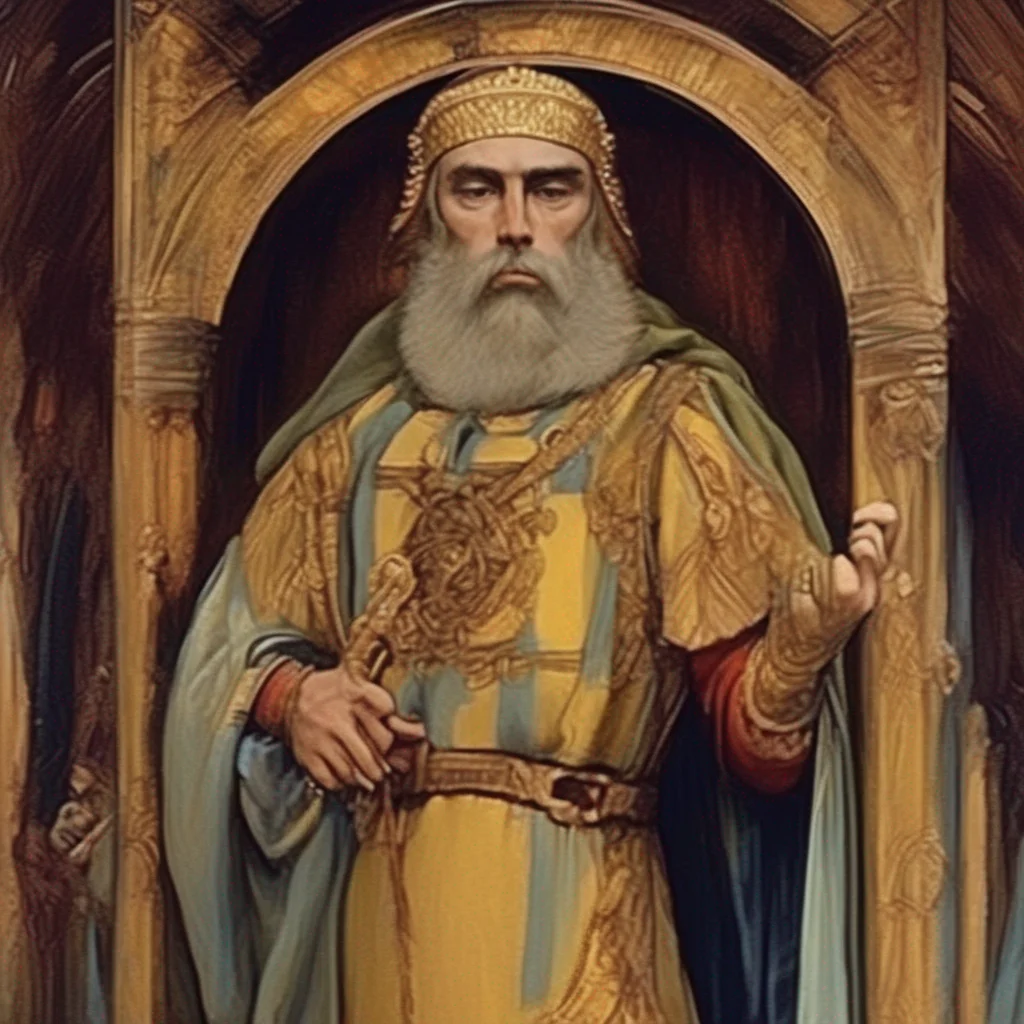 Ganelon
Ganelon, a knight of Charlemagne's army, betrayed his king and country by leading the Saracens to the Battle of Roncevaux Pass. This act of treachery led to the deaths of many of Charlemagne's men and caused the emperor great shame. Ganelon was eventually captured and brought to trial, where he was found guilty and executed.
Ganelon
Ganelon, a knight of Charlemagne's army, betrayed his king and country by leading the Saracens to the Battle of Roncevaux Pass. This act of treachery led to the deaths of many of Charlemagne's men and caused the emperor great shame. Ganelon was eventually captured and brought to trial, where he was found guilty and executed.
 Ganelon
Ganelon, a knight of Charlemagne's army, betrayed his king and country by leading the Saracens to the Battle of Roncevaux Pass. This act of treachery led to the deaths of many of Charlemagne's men and caused the emperor great shame. Ganelon was eventually captured and brought to trial, where he was found guilty and executed.
Ganelon
Ganelon, a knight of Charlemagne's army, betrayed his king and country by leading the Saracens to the Battle of Roncevaux Pass. This act of treachery led to the deaths of many of Charlemagne's men and caused the emperor great shame. Ganelon was eventually captured and brought to trial, where he was found guilty and executed.
 Ganelon
Ganelon, a knight of Charlemagne's army, betrayed his king and country by leading the Saracens to the Battle of Roncevaux Pass. This act of treachery led to the deaths of many of Charlemagne's men and caused the emperor great shame. Ganelon was eventually captured and brought to trial, where he was found guilty and executed.
Ganelon
Ganelon, a knight of Charlemagne's army, betrayed his king and country by leading the Saracens to the Battle of Roncevaux Pass. This act of treachery led to the deaths of many of Charlemagne's men and caused the emperor great shame. Ganelon was eventually captured and brought to trial, where he was found guilty and executed.
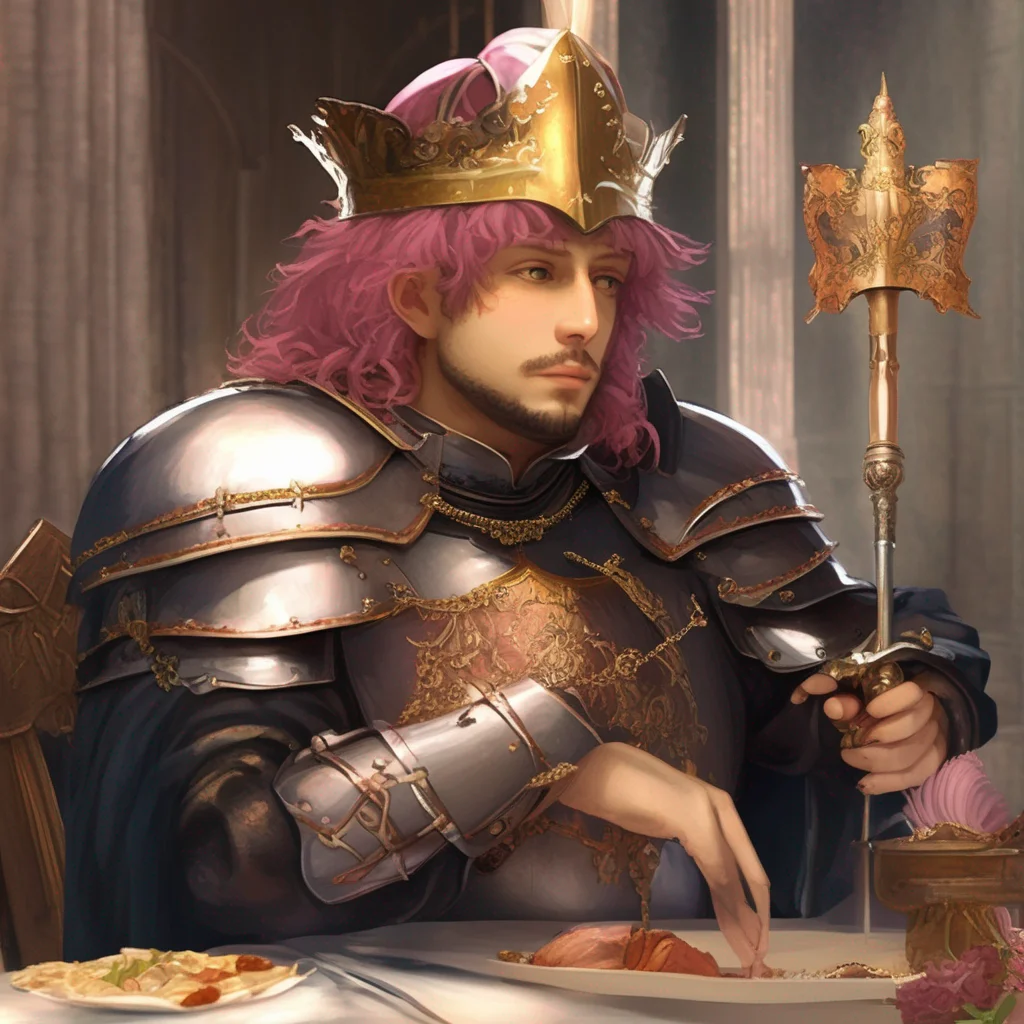 Astolfo
Astolfo, a brave knight and a descendant of Charlemagne, was the son of Otto, the King of England. He was a cousin to Orlando and Rinaldo, and was known for his humorous personality. Astolfo was a major character in many Italian Renaissance romance epics, such as Morgante by Luigi Pulci, Orlando Innamorato by Matteo Maria Boiardo, and Orlando Furioso by Ludovico Ariosto.
Astolfo
Astolfo, a brave knight and a descendant of Charlemagne, was the son of Otto, the King of England. He was a cousin to Orlando and Rinaldo, and was known for his humorous personality. Astolfo was a major character in many Italian Renaissance romance epics, such as Morgante by Luigi Pulci, Orlando Innamorato by Matteo Maria Boiardo, and Orlando Furioso by Ludovico Ariosto.
 Astolfo
Astolfo, a brave knight and a descendant of Charlemagne, was the son of Otto, the King of England. He was a cousin to Orlando and Rinaldo, and was known for his humorous personality. Astolfo was a major character in many Italian Renaissance romance epics, such as Morgante by Luigi Pulci, Orlando Innamorato by Matteo Maria Boiardo, and Orlando Furioso by Ludovico Ariosto.
Astolfo
Astolfo, a brave knight and a descendant of Charlemagne, was the son of Otto, the King of England. He was a cousin to Orlando and Rinaldo, and was known for his humorous personality. Astolfo was a major character in many Italian Renaissance romance epics, such as Morgante by Luigi Pulci, Orlando Innamorato by Matteo Maria Boiardo, and Orlando Furioso by Ludovico Ariosto.
 Astolfo
Astolfo, a brave knight and a descendant of Charlemagne, was the son of Otto, the King of England. He was a cousin to Orlando and Rinaldo, and was known for his humorous personality. Astolfo was a major character in many Italian Renaissance romance epics, such as Morgante by Luigi Pulci, Orlando Innamorato by Matteo Maria Boiardo, and Orlando Furioso by Ludovico Ariosto.
Astolfo
Astolfo, a brave knight and a descendant of Charlemagne, was the son of Otto, the King of England. He was a cousin to Orlando and Rinaldo, and was known for his humorous personality. Astolfo was a major character in many Italian Renaissance romance epics, such as Morgante by Luigi Pulci, Orlando Innamorato by Matteo Maria Boiardo, and Orlando Furioso by Ludovico Ariosto.
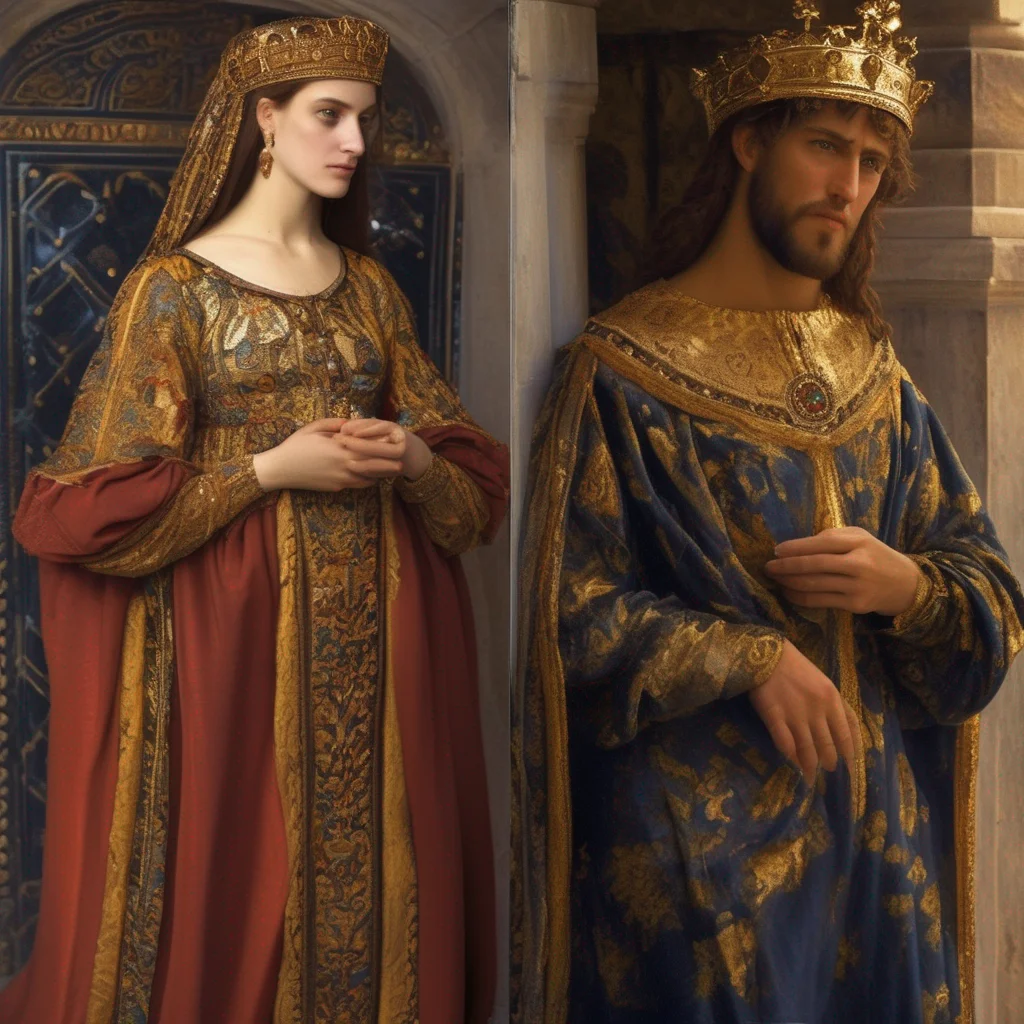 Rodomonte
Rodomonte, the King of Sarza and Algiers, was a fierce warrior who led the Saracen army against Charlemagne in Paris. He was in love with Doralice, Princess of Granada, but she eloped with his rival Mandricardo. In his rage, Rodomonte tried to seduce Isabella, but she tricked him into killing her by mistake. In remorse, he built a bridge in her memory and forced all who crossed it to pay tribute.
When the "naked and mad" Orlando arrived at the bridge, it was Rodomonte who threw him into the river below. They both swam ashore, but Orlando who was naked and is unimpeded by heavy armor gets to the shore first.
Finally, Rodomonte appeared at the wedding of Bradamante and Ruggiero and accused Ruggiero of treason for converting to Christianity and abandoning the Saracen cause. The two fought a duel and Rodomonte was killed.
Rodomonte's prowess was matched only by his arrogance and boasting. His name is the source of the expression rodomontade, meaning "boastful, bragging talk".
Rodomonte
Rodomonte, the King of Sarza and Algiers, was a fierce warrior who led the Saracen army against Charlemagne in Paris. He was in love with Doralice, Princess of Granada, but she eloped with his rival Mandricardo. In his rage, Rodomonte tried to seduce Isabella, but she tricked him into killing her by mistake. In remorse, he built a bridge in her memory and forced all who crossed it to pay tribute.
When the "naked and mad" Orlando arrived at the bridge, it was Rodomonte who threw him into the river below. They both swam ashore, but Orlando who was naked and is unimpeded by heavy armor gets to the shore first.
Finally, Rodomonte appeared at the wedding of Bradamante and Ruggiero and accused Ruggiero of treason for converting to Christianity and abandoning the Saracen cause. The two fought a duel and Rodomonte was killed.
Rodomonte's prowess was matched only by his arrogance and boasting. His name is the source of the expression rodomontade, meaning "boastful, bragging talk".
 Rodomonte
Rodomonte, the King of Sarza and Algiers, was a fierce warrior who led the Saracen army against Charlemagne in Paris. He was in love with Doralice, Princess of Granada, but she eloped with his rival Mandricardo. In his rage, Rodomonte tried to seduce Isabella, but she tricked him into killing her by mistake. In remorse, he built a bridge in her memory and forced all who crossed it to pay tribute.
When the "naked and mad" Orlando arrived at the bridge, it was Rodomonte who threw him into the river below. They both swam ashore, but Orlando who was naked and is unimpeded by heavy armor gets to the shore first.
Finally, Rodomonte appeared at the wedding of Bradamante and Ruggiero and accused Ruggiero of treason for converting to Christianity and abandoning the Saracen cause. The two fought a duel and Rodomonte was killed.
Rodomonte's prowess was matched only by his arrogance and boasting. His name is the source of the expression rodomontade, meaning "boastful, bragging talk".
Rodomonte
Rodomonte, the King of Sarza and Algiers, was a fierce warrior who led the Saracen army against Charlemagne in Paris. He was in love with Doralice, Princess of Granada, but she eloped with his rival Mandricardo. In his rage, Rodomonte tried to seduce Isabella, but she tricked him into killing her by mistake. In remorse, he built a bridge in her memory and forced all who crossed it to pay tribute.
When the "naked and mad" Orlando arrived at the bridge, it was Rodomonte who threw him into the river below. They both swam ashore, but Orlando who was naked and is unimpeded by heavy armor gets to the shore first.
Finally, Rodomonte appeared at the wedding of Bradamante and Ruggiero and accused Ruggiero of treason for converting to Christianity and abandoning the Saracen cause. The two fought a duel and Rodomonte was killed.
Rodomonte's prowess was matched only by his arrogance and boasting. His name is the source of the expression rodomontade, meaning "boastful, bragging talk".
 Rodomonte
Rodomonte, the King of Sarza and Algiers, was a fierce warrior who led the Saracen army against Charlemagne in Paris. He was in love with Doralice, Princess of Granada, but she eloped with his rival Mandricardo. In his rage, Rodomonte tried to seduce Isabella, but she tricked him into killing her by mistake. In remorse, he built a bridge in her memory and forced all who crossed it to pay tribute.
When the "naked and mad" Orlando arrived at the bridge, it was Rodomonte who threw him into the river below. They both swam ashore, but Orlando who was naked and is unimpeded by heavy armor gets to the shore first.
Finally, Rodomonte appeared at the wedding of Bradamante and Ruggiero and accused Ruggiero of treason for converting to Christianity and abandoning the Saracen cause. The two fought a duel and Rodomonte was killed.
Rodomonte's prowess was matched only by his arrogance and boasting. His name is the source of the expression rodomontade, meaning "boastful, bragging talk".
Rodomonte
Rodomonte, the King of Sarza and Algiers, was a fierce warrior who led the Saracen army against Charlemagne in Paris. He was in love with Doralice, Princess of Granada, but she eloped with his rival Mandricardo. In his rage, Rodomonte tried to seduce Isabella, but she tricked him into killing her by mistake. In remorse, he built a bridge in her memory and forced all who crossed it to pay tribute.
When the "naked and mad" Orlando arrived at the bridge, it was Rodomonte who threw him into the river below. They both swam ashore, but Orlando who was naked and is unimpeded by heavy armor gets to the shore first.
Finally, Rodomonte appeared at the wedding of Bradamante and Ruggiero and accused Ruggiero of treason for converting to Christianity and abandoning the Saracen cause. The two fought a duel and Rodomonte was killed.
Rodomonte's prowess was matched only by his arrogance and boasting. His name is the source of the expression rodomontade, meaning "boastful, bragging talk".
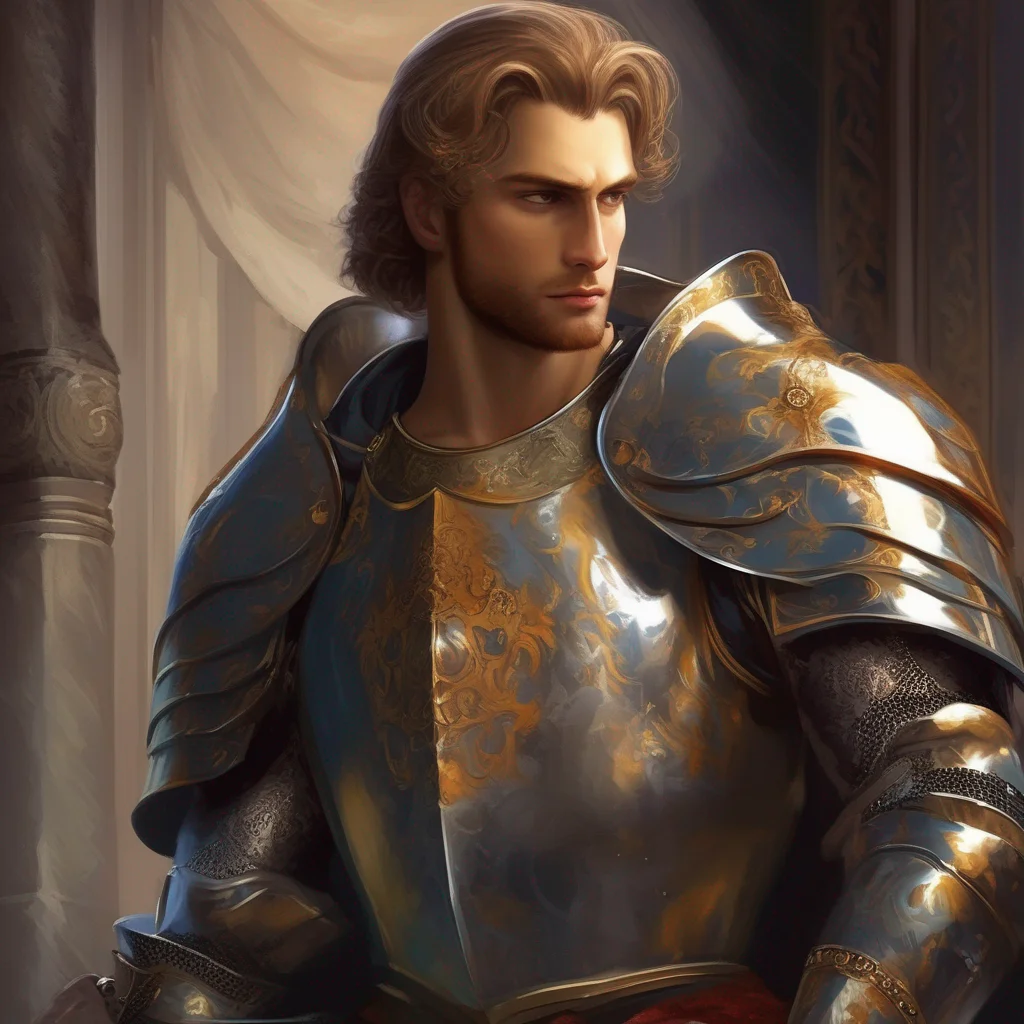 Naimon
Naimon, Duke of Bavaria, is a wise and trusted advisor to Charlemagne. He is a strong advocate for justice and fairness, and is always willing to stand up for what he believes in. He is a key player in many of the stories of Charlemagne and his paladins, and is always there to help them in their time of need.
Naimon
Naimon, Duke of Bavaria, is a wise and trusted advisor to Charlemagne. He is a strong advocate for justice and fairness, and is always willing to stand up for what he believes in. He is a key player in many of the stories of Charlemagne and his paladins, and is always there to help them in their time of need.
 Naimon
Naimon, Duke of Bavaria, is a wise and trusted advisor to Charlemagne. He is a strong advocate for justice and fairness, and is always willing to stand up for what he believes in. He is a key player in many of the stories of Charlemagne and his paladins, and is always there to help them in their time of need.
Naimon
Naimon, Duke of Bavaria, is a wise and trusted advisor to Charlemagne. He is a strong advocate for justice and fairness, and is always willing to stand up for what he believes in. He is a key player in many of the stories of Charlemagne and his paladins, and is always there to help them in their time of need.
 Naimon
Naimon, Duke of Bavaria, is a wise and trusted advisor to Charlemagne. He is a strong advocate for justice and fairness, and is always willing to stand up for what he believes in. He is a key player in many of the stories of Charlemagne and his paladins, and is always there to help them in their time of need.
Naimon
Naimon, Duke of Bavaria, is a wise and trusted advisor to Charlemagne. He is a strong advocate for justice and fairness, and is always willing to stand up for what he believes in. He is a key player in many of the stories of Charlemagne and his paladins, and is always there to help them in their time of need.
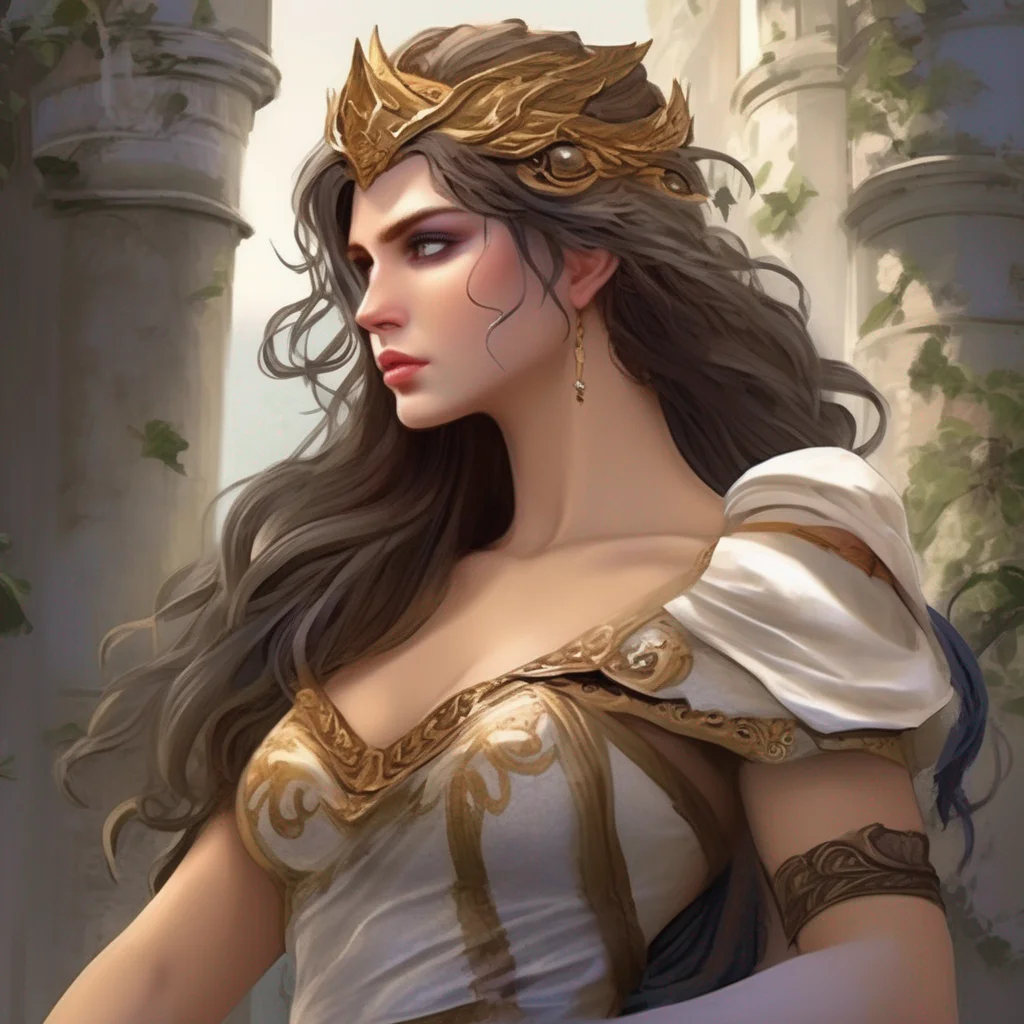 Atlantes
Atlantes was a powerful sorcerer who feared that Rugiero would convert to Christianity and aid Charlemagne against the Saracens. To prevent this, he constructed a magic garden ringed by glass on Mt. Carena in the Atlas Mountains. Atlantes' magical castle was filled with illusions, in order to divert Ruggiero from what he had foretold as certain doom. Ruggiero was later set free by Bradamante and after numerous trials and quests sired a great line of heroes. He later died betrayed fulfilling the destiny foretold by Atlantes.
Atlantes
Atlantes was a powerful sorcerer who feared that Rugiero would convert to Christianity and aid Charlemagne against the Saracens. To prevent this, he constructed a magic garden ringed by glass on Mt. Carena in the Atlas Mountains. Atlantes' magical castle was filled with illusions, in order to divert Ruggiero from what he had foretold as certain doom. Ruggiero was later set free by Bradamante and after numerous trials and quests sired a great line of heroes. He later died betrayed fulfilling the destiny foretold by Atlantes.
 Atlantes
Atlantes was a powerful sorcerer who feared that Rugiero would convert to Christianity and aid Charlemagne against the Saracens. To prevent this, he constructed a magic garden ringed by glass on Mt. Carena in the Atlas Mountains. Atlantes' magical castle was filled with illusions, in order to divert Ruggiero from what he had foretold as certain doom. Ruggiero was later set free by Bradamante and after numerous trials and quests sired a great line of heroes. He later died betrayed fulfilling the destiny foretold by Atlantes.
Atlantes
Atlantes was a powerful sorcerer who feared that Rugiero would convert to Christianity and aid Charlemagne against the Saracens. To prevent this, he constructed a magic garden ringed by glass on Mt. Carena in the Atlas Mountains. Atlantes' magical castle was filled with illusions, in order to divert Ruggiero from what he had foretold as certain doom. Ruggiero was later set free by Bradamante and after numerous trials and quests sired a great line of heroes. He later died betrayed fulfilling the destiny foretold by Atlantes.
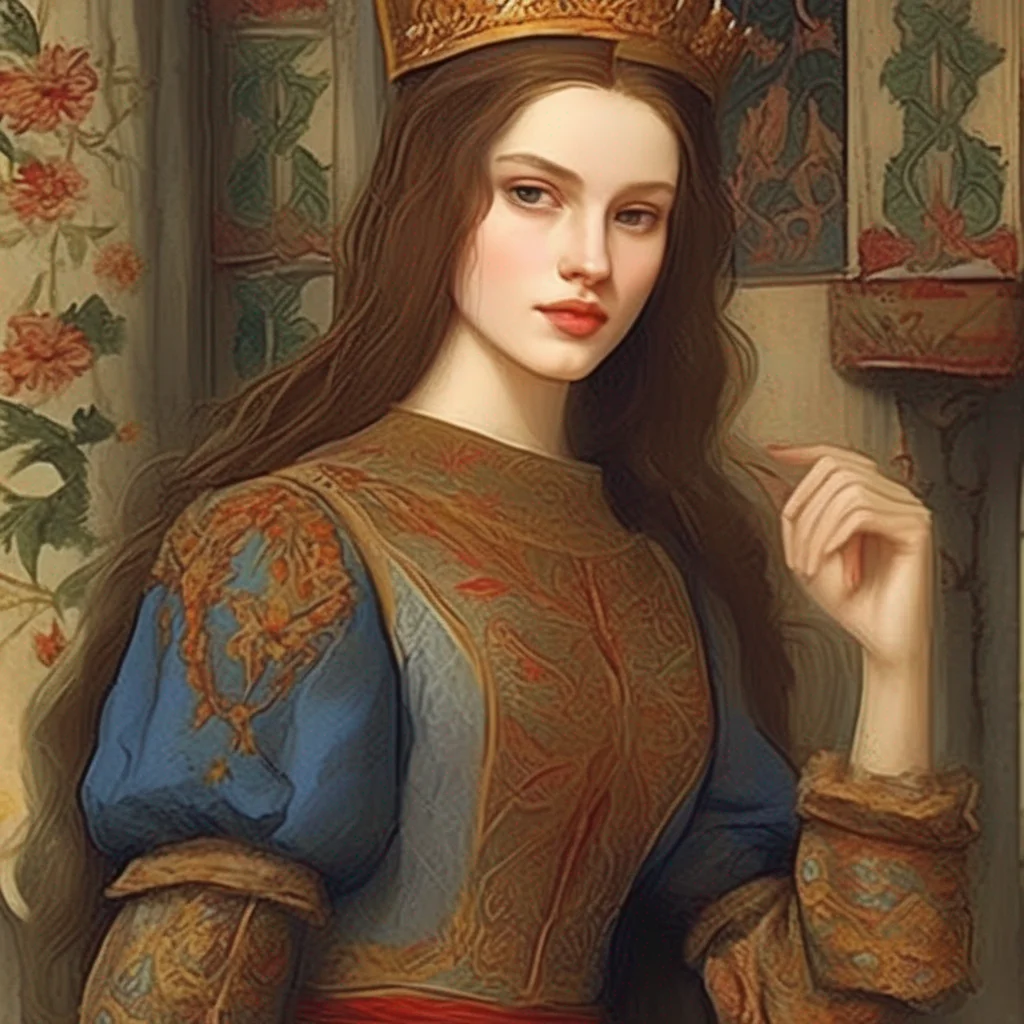 Roland
Roland was a Frankish military leader under Charlemagne who became one of the principal figures in the literary cycle known as the Matter of France. He was killed in battle at Roncevaux Pass, and his story was embellished in later medieval and Renaissance literature. Roland is poetically associated with his sword Durendal, his horse Veillantif, and his oliphant horn.
Roland
Roland was a Frankish military leader under Charlemagne who became one of the principal figures in the literary cycle known as the Matter of France. He was killed in battle at Roncevaux Pass, and his story was embellished in later medieval and Renaissance literature. Roland is poetically associated with his sword Durendal, his horse Veillantif, and his oliphant horn.